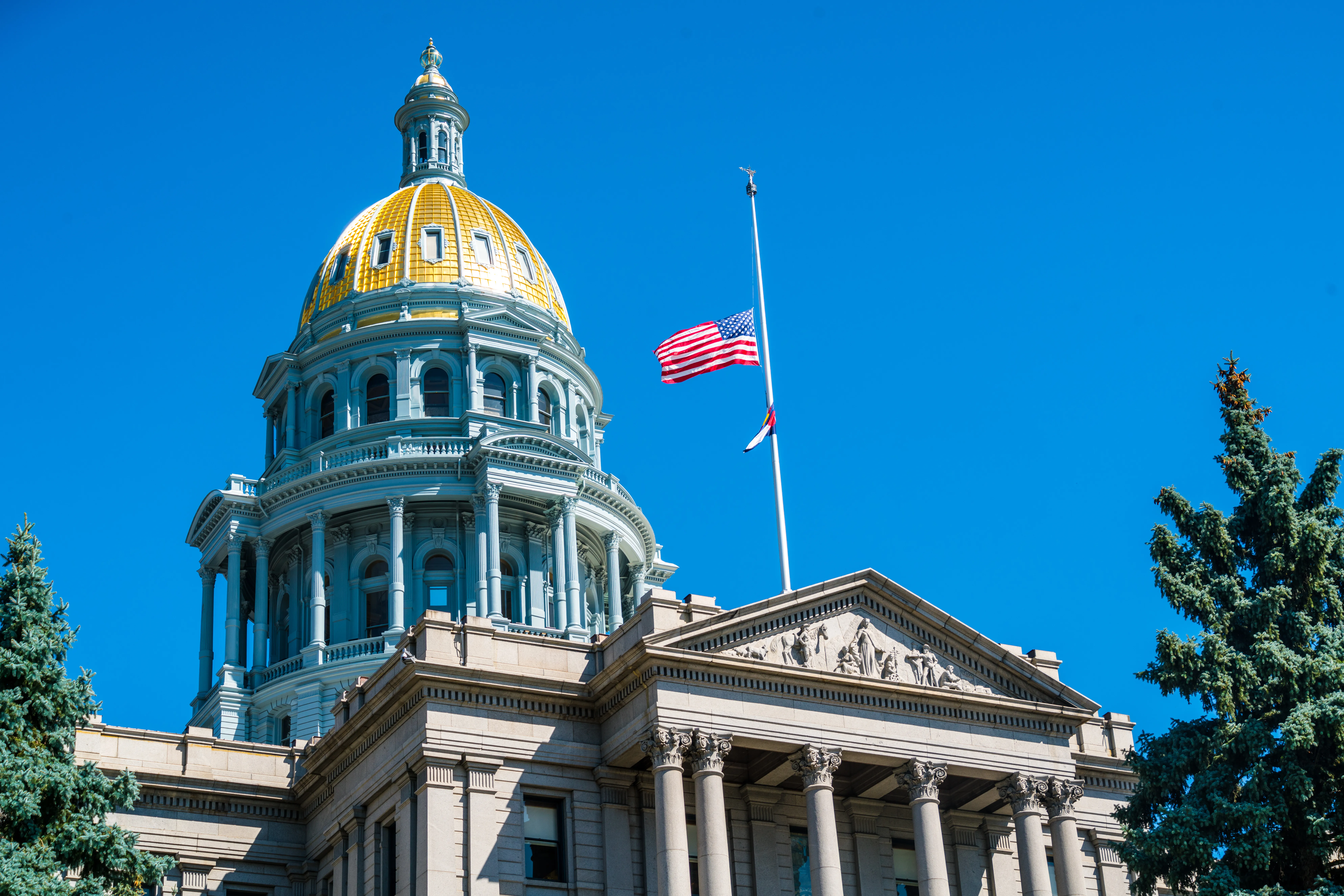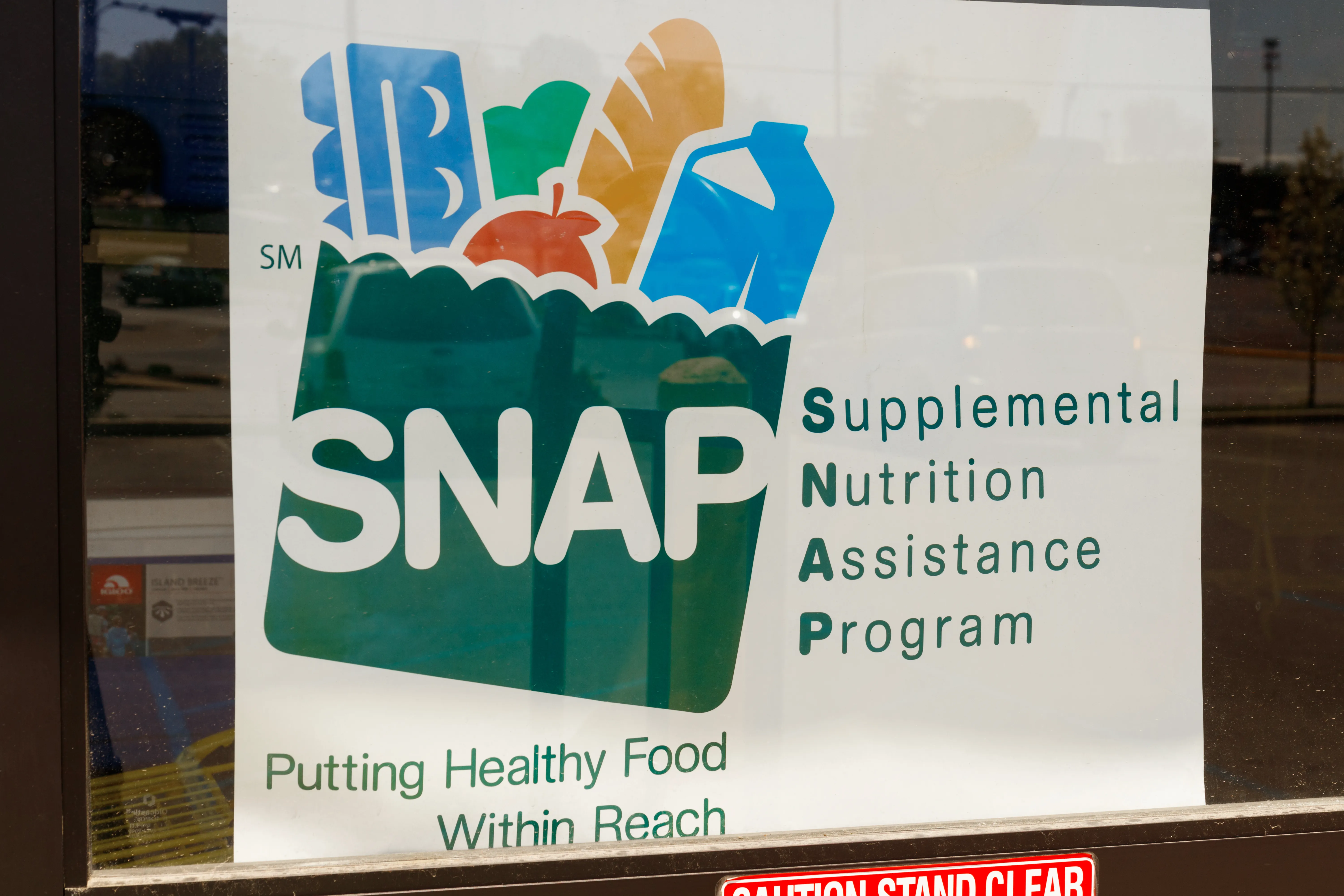
Daily Audio Newscast - October 14, 2024
News from around the nation.
The U.S. to send anti-missile system and troops to Israel despite warnings from Iran; Native vote is encouraged on Indigenous Peoples' Day; School safety expert suggests 'report, not repost' in response to threats; and debunking the horror: to oceans, sharks are vital, not villains.
Transcript
The Public News Service Daily Newscast for October 14th, 2024.
I'm Mary Sherman.
The US will send an advanced anti-missile system along with the troops needed to operate it to Israel to help bolster Israel's air defenses.
The move follows Iran's recent attacks on Israel and despite Iran's warning to Washington to keep military forces out of Israel.
Today is Indigenous Peoples Day and tribal leaders are using the occasion to call on people in Indian country to vote in the upcoming election.
We go to Mark Moran in Montana for more.
This year is the 100th anniversary of the Indian Citizenship Act, passed in 1924, to grant US citizenship to all Indigenous people, including the right to vote.
But Montana poet laureate and Native American activist Chris Luttre says there have been consistent efforts to suppress that right.
He's calling on the state's Native population to cast their ballots.
Because it has power.
So I urge you to use it.
Vote in tribal elections, community elections, state and national elections, every election you can.
Guide the future of our people.
Protect the future of our people.
Indigenous advocacy groups have worked to increase voter registration numbers on tribal lands.
They've created an online voter information guide and continue to fight efforts to limit remote ballot collection on Montana's seven reservations.
Three national polls released Sunday depict a tightening presidential race with former President Donald Trump erasing recent gains from Vice President Kamala Harris with just 23 days to go.
However, while national polls may depict an image of the state of the race, they don't show who will win the electoral college.
Following a Georgia high school shooting in early September, there's been a surge in school threats across the country.
In South Dakota, safety experts are teaching people to report threats and teaching schools how to field them.
In mid-September, a threatening social media post caused the Meade School District to move into secure status.
After it was proven to be non-credible, County Sheriff Pat West pointed out that social media shares spread like wildfire and make investigations much more difficult.
Brett Garland is director of the South Dakota School Safety Program within the Office of Homeland Security.
He advises people to report, don't repost.
We would prefer that schools, parents, students, community members immediately get in touch with their law enforcement agency if they receive information regarding a threat.
Definitely, we would prefer they not share those threats in any way.
An anonymous tip line for concerns in South Dakota called "Safe to Say" is available online or by phone 24/7.
Threatening a school, school transit, or other place of assembly is a class four felony in South Dakota.
I'm Kathleen Shannon.
This is Public News Service.
A new study by the Missouri Budget Project calls out some opposing views to the ballot measure known as Proposition A and includes data to debunk them as myths.
Judith Ruiz Branch reports.
If it passes next month, Proposition A would raise Missouri's minimum wage from $12.30 an hour to $15 by 2026.
Opponents say the increase would mostly affect young adults and teenagers, but Lindsay Baker with the Missouri Budget Project disagrees.
She says debunking the myth of who the minimum wage increase affects is one of her organization's top priorities.
One thing that people are often unaware of is just how many kids and families would benefit from this.
Often, people have a stereotypical image of who minimum-wage workers are, and really, they are all kinds of people.
The report says one in four Missouri kids lives in a household that would see their income rise with an increase in the minimum wage.
Since 1964, per capita meat consumption has doubled, and environmental advocates say that's unsustainable.
And there are more billionaires raising questions about their role in reshaping food production.
According to reporting from Seth Milstein at Sentient, the livestock industry is responsible for up to 20 percent of all greenhouse gas emissions, with 80 percent of all agricultural land going to meat production.
And while the world's population is predicted to swell to 9.7 billion by 2050, it means people potentially eating more meat.
That's alarming to folks like Sheila Voss with the Good Food Institute.
I was at a workshop surrounded by pork producers, chicken farmers, and dairy farmers, and eight out of 10 of them agreed that they will not be able to meet growing meat production on their own.
Groups like hers that want reform say the world's richest people are in a position to help fund alternatives.
As Halloween approaches, a spooky campaign aims to clear up the common misunderstandings about some of nature's most feared creatures.
In collaboration with other organizations, Defenders of Wildlife is launching its Real Scary Movies campaign to highlight how animals, often vilified in horror stories like sharks, bats, and wolves, are vital to the health of their ecosystems.
Jane Davenport with Defenders of Wildlife hopes to dispel these myths, many of which she says have been fueled by Hollywood blockbusters like the 1975 movie "Jaws."
Obviously, a shark attack on a human is a terrifying and unfortunately sometimes tragic event.
There's only about 70 unprovoked shark attacks on people every year all around the world.
On the other hand, humans are killing northwards of 80 million sharks every year.
Davenport believes the sharks' frightening reputation has contributed to a lack of focus on their preservation, leading some species toward extinction.
The shark-fishing industry defends its practices by claiming U.S. shark fisheries are among the most sustainable, with laws that prevent overfishing and enhance economic value.
I'm Tramell Gomes.
This is Mary Sherman for Public News Service, member and listener supported.
Find our trust indicators at publicnewservice.org.
















